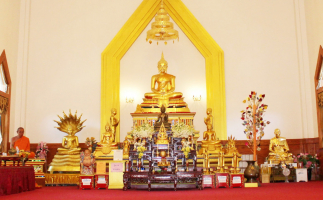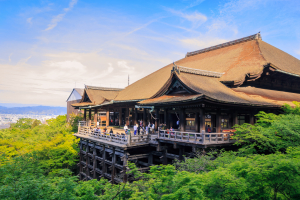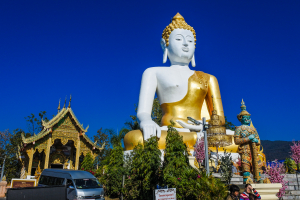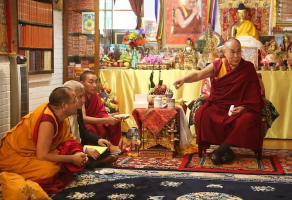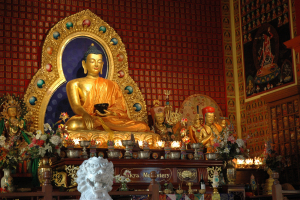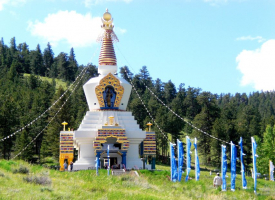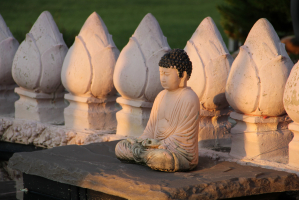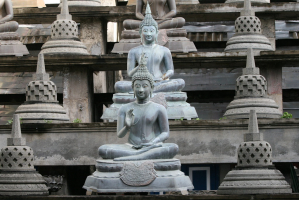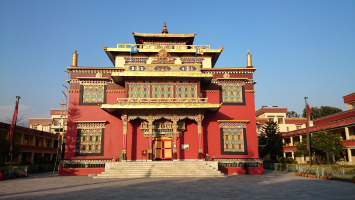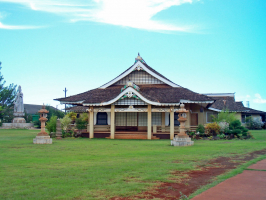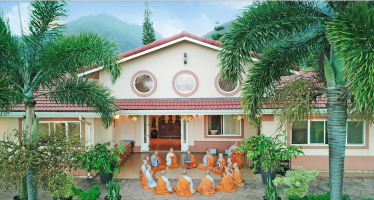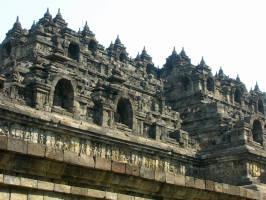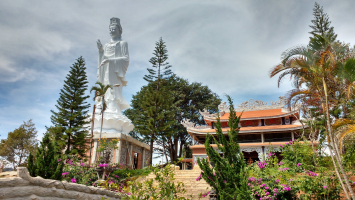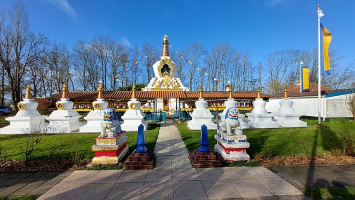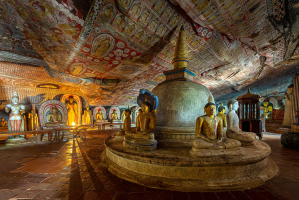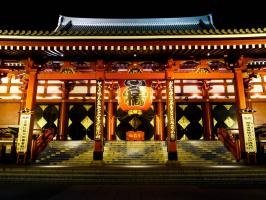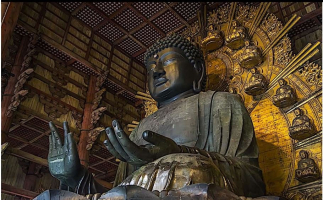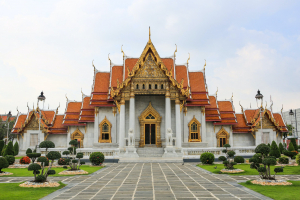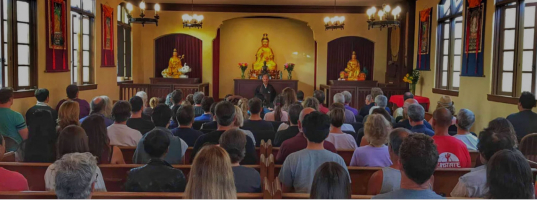Top 10 Best Buddhist Temples in Honolulu
Honolulu is not only known for its stunning beaches and vibrant culture but is also home to a rich spiritual tapestry. There are serene havens that offer a ... read more...peaceful retreat for both locals and visitors alike. In this article, we will delve into the top best Buddhist temples in Honolulu, each with its unique charm, architectural beauty, and spiritual significance.
-
The Chinese Buddhist Association of Hawaii Hsu Yun Temple stands as a testament to the enduring presence of Buddhism in the islands. The Hsu Yun Temple has deep roots in both Chinese and Hawaiian cultures. The temple is dedicated to the revered Chan Buddhist monk, Hsu Yun. The Hsu Yun Temple's architecture is a blend of traditional Chinese design and contemporary elements.
The Hsu Yun Temple serves as a living tribute to his teachings, offering a space for practitioners to study and embody the principles of Chan Buddhism. The Hsu Yun Temple actively engages with the local community through educational initiatives and cultural events. Regular Dharma talks, meditation classes, and workshops provide opportunities for both beginners and experienced practitioners to deepen their understanding of Buddhist teachings.
The temple's commitment to inclusivity and accessibility fosters a sense of community among its diverse members. The Hsu Yun Temple comes alive during traditional Buddhist festivals and special celebrations. These events, marked by colorful ceremonies, chanting, and communal gatherings, serve as occasions for reflection, gratitude, and joy.
The Hsu Yun Temple offers meditation retreats and spiritual programs. These retreats provide participants with a unique opportunity to disconnect from the demands of daily life and embark on a journey of self-discovery. Guided by experienced meditation instructors, attendees can explore various meditation techniques and deepen their connection to the profound teachings of Chan Buddhism.
The Hsu Yun Temple contributes to the preservation of Chinese Buddhist traditions in Hawaii. Through its activities, the temple fosters an appreciation for the rich cultural heritage of Buddhism while promoting cross-cultural understanding. Visitors have the chance to explore the profound teachings of Chan Buddhism within the context of Hawaii's diverse and inclusive society.
Phone: +180 8536 8458
Website: https://chinese-buddhist-association-hawaii.business.site/
Address: 42 Kawananakoa Pl, Honolulu, HI 96817, USA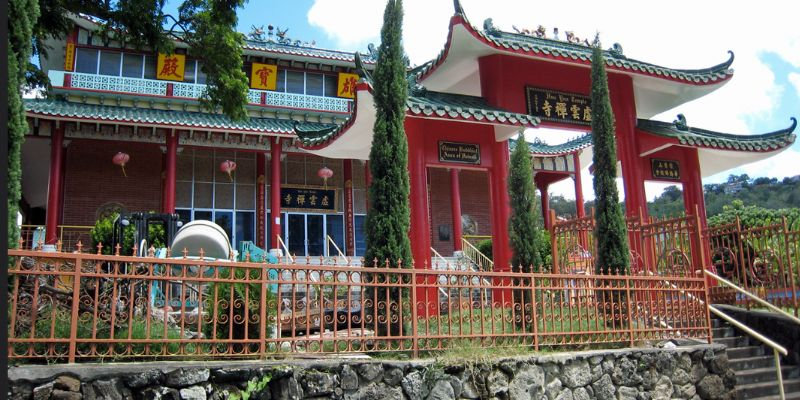
Photo on Flickr: https://www.flickr.com/photos/mycatfredisfat/3157332539/ 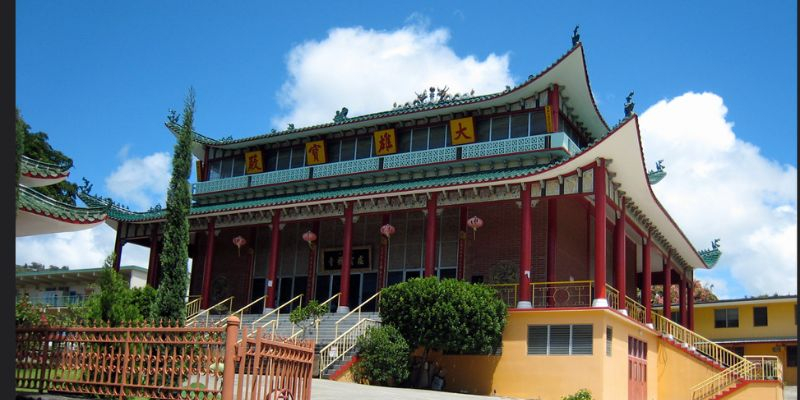
Photo on Flickr: https://www.flickr.com/photos/mycatfredisfat/3158171804/ -
Mu-Ryang-Sa Korean Buddhist Temple offers visitors a unique opportunity to experience the beauty of Korean Buddhism while finding solace in its peaceful surroundings. Mu-Ryang-Sa Korean Buddhist Temple has a rich history rooted in Korean Buddhism. Its establishment in Honolulu reflects the cultural diversity of the city and serves as a bridge between Korean traditions and the Hawaiian community.
The temple's architecture is a testament to the artistic and spiritual traditions of Korea. Intricate wooden carvings, vibrant colors, and traditional Korean roof lines characterize the main hall and surrounding structures. Visitors are greeted by the majestic beauty of the temple, creating an atmosphere that encourages contemplation and reverence.
Mu-Ryang-Sa offers a range of traditional Korean Buddhist practices that visitors can participate in. Meditation sessions, chanting, and ritual ceremonies are integral to the temple's daily routine. The teachings often emphasize mindfulness, compassion, and the path to enlightenment. It provides a unique perspective on Buddhist philosophy within the context of Korean traditions.
Surrounding the temple are meticulously maintained meditation gardens that invite visitors to connect with nature and find tranquility. The carefully arranged flora, reflective ponds, and stone pathways create a serene environment conducive to meditation and reflection. The meditation gardens are not only a visual delight but also serve as an extension of the temple's commitment to inner peace.
Participants can engage in the daily life of the temple, participating in meditation sessions, Buddhist rituals, and communal activities. These programs provide a unique opportunity for individuals to gain a deeper understanding of Korean Buddhism and its practices. The temple is likely involved in educational outreach programs and it shares the teachings of Buddhism with the broader community.
Phone: +180 8735 7858
Website: https://muryangsatemple.com/about/
Address: 2420 Halelaau Pl, Honolulu, HI 96816, USA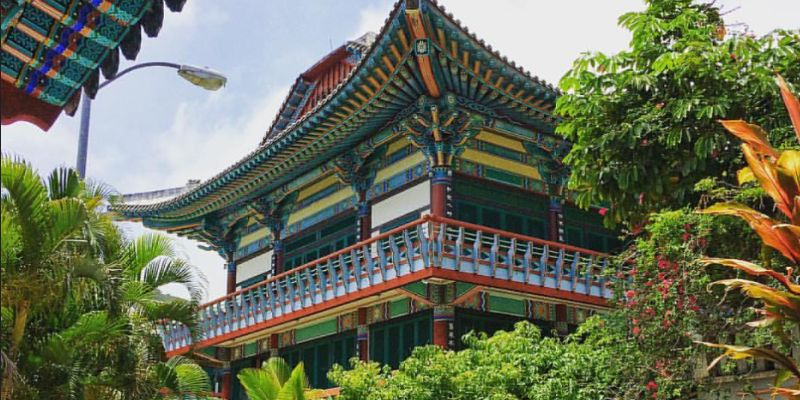
Photo on Flickr: https://www.flickr.com/photos/remembertobreathe/27408449035/ 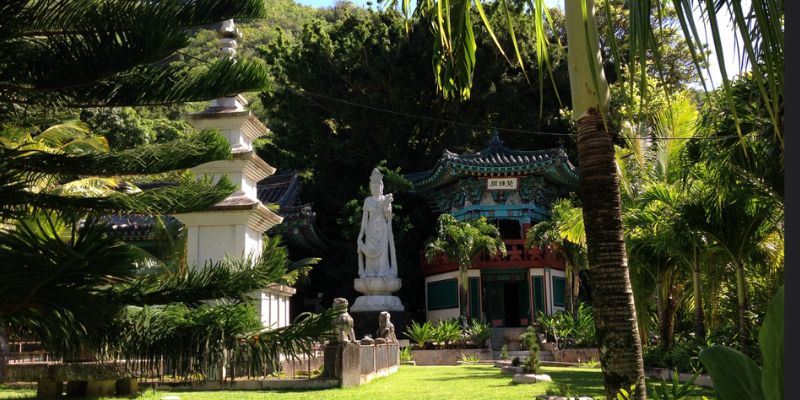
Photo on Flickr: https://www.flickr.com/photos/bytemarks/11922730976/ -
Kuan Yin Temple stands as a testament to compassion, wisdom, and spiritual tranquility. This temple offers a refuge from the chaos of everyday life, providing solace to those seeking inner peace. At the core of the Kuan Yin Temple's identity is the embodiment of compassion in the form of Bodhisattva Kuan Yin.
The temple's architecture is often a blend of traditional and contemporary styles, with intricate carvings, vibrant colors, and symbolic representations of Buddhist teachings. The main hall, dedicated to Kuan Yin, exudes a serene atmosphere that invites visitors to contemplate and connect with the divine. The temple's design serves as a visual expression of the profound principles it embodies.
Regular rituals and worship ceremonies are integral to the Kuan Yin Temple's daily life. Devotees and visitors alike participate in prayers, chants, and offerings, creating an atmosphere of reverence and spiritual connection. The rituals often center around invoking Kuan Yin's blessings for healing, compassion, and guidance.
Meditation halls or dedicated spaces within the temple provide individuals with an opportunity to engage in contemplative practices. Whether guided meditation sessions or silent reflection, these spaces offer a respite for those seeking to quiet the mind and nurture the spirit.
The Kuan Yin Temple comes alive during special festivals and celebrations, commemorating significant events in Buddhism or honoring Bodhisattva Kuan Yin. These events often involve colorful processions, cultural performances, and communal feasts, fostering a sense of joy, unity, and shared spirituality.
Beyond its role as a place of worship, the Kuan Yin Temple actively engages with the local community through various outreach programs. These may include charitable initiatives, educational workshops, and partnerships with local organizations to address social issues. The temple's commitment to compassionate action extends beyond its sacred walls.
The Kuan Yin Temple may host cultural and educational programs to promote understanding and appreciation of Buddhist teachings. These initiatives could include lectures, art exhibitions, and workshops that invite individuals to explore the rich tapestry of Buddhist philosophy and practices.
Phone: +180 8533 6361
Website: https://kuan-yin-temple.poi.place/
Address: 170 N Vineyard Blvd, Honolulu, HI 96817, USA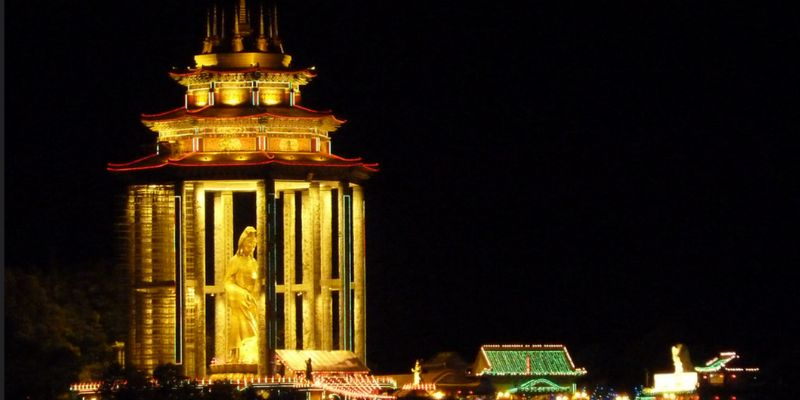
Photo on Flickr: https://www.flickr.com/photos/rescuedog/8307196114/ 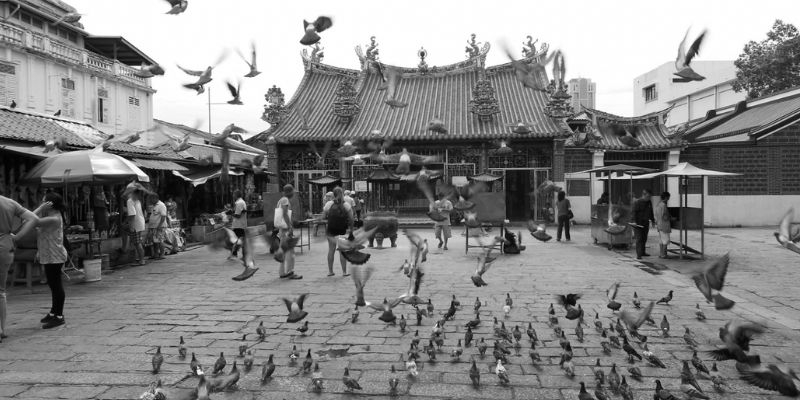
Photo on Flickr: https://www.flickr.com/photos/letsbook/37189171234/ -
Koganji Temples offers a spiritual haven to seekers and a glimpse into the rich tapestry of Buddhist traditions. Koganji Temples in Honolulu have deep roots that trace back to the migration of Japanese communities to Hawaii. These temples were established to serve as spiritual anchors for the immigrant population, providing a sense of continuity with their cultural and religious heritage.
The architectural design of Koganji Temples combines traditional Japanese aesthetics with the practical adaptations required for the Hawaiian environment. From the iconic pagoda-style roofs to serene meditation gardens, the temples are designed to create an atmosphere of peace and contemplation. The balance of simplicity and elegance in their architecture reflects the core principles of Buddhist teachings.
Koganji Temples offer a diverse array of spiritual practices and teachings rooted in Japanese Buddhism. Visitors and practitioners engage in meditation sessions, prayer rituals, and teachings that resonate with the Zen or Pure Land traditions. The teachings emphasize mindfulness, compassion, and the path to enlightenment, providing a sanctuary for those seeking spiritual growth.
Koganji Temples actively engage with the local community through cultural events and celebrations. Traditional Japanese festivals, such as Obon, are marked by colorful processions, lively performances, and communal feasts. These celebrations not only honor ancestors but also contribute to the vibrant cultural mosaic of Honolulu.
Koganji Temples often feature meticulously curated meditation gardens and contemplative spaces. These areas provide a serene environment for individuals to escape the urban hustle, fostering a sense of tranquility and connection with nature. The gardens serve as outdoor extensions of the temple, inviting visitors to engage in silent reflection and meditation.
Koganji Temples play a crucial role in educating both their members and the wider community about Japanese Buddhism. Workshops, lectures, and cultural programs are organized to promote understanding and appreciation for the traditions and teachings of Koganji. These educational initiatives contribute to the temple's role as a cultural and spiritual center.
In the diverse religious landscape of Honolulu, Koganji Temples actively participate in interfaith dialogue. It fosters harmony and understanding among different religious communities. This inclusive approach reflects the universal values of Buddhism and contributes to the city's ethos of cultural diversity.
Phone: +180 8988 7214
Website: https://koganjitemple.org/
Address: 2869 Oahu Ave, Honolulu, HI 96822, USA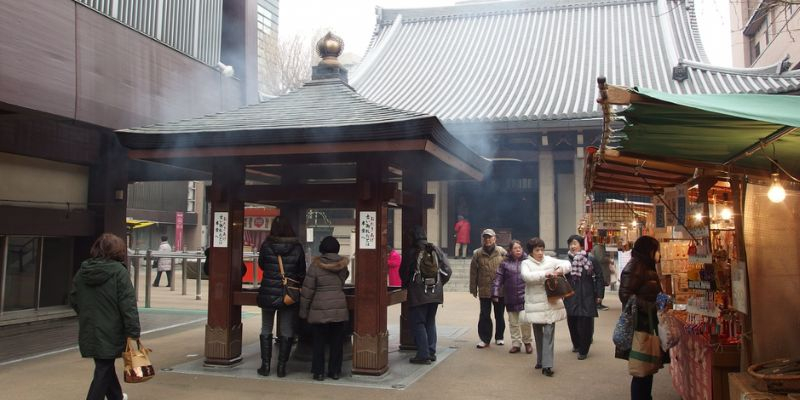
Photo on Flickr: https://www.flickr.com/photos/o_0/12503031374/ 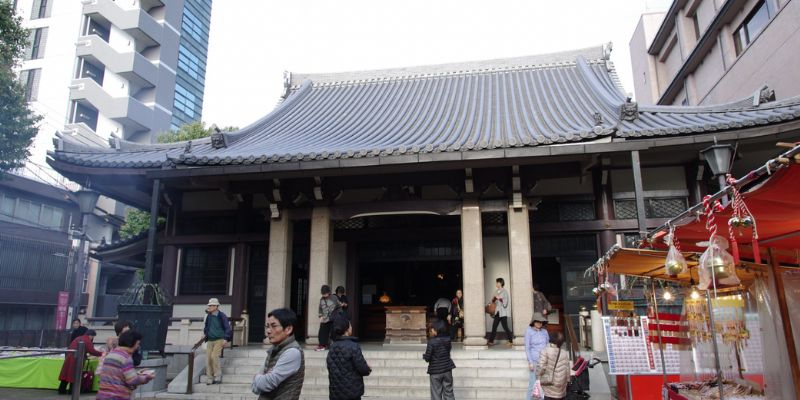
Photo on Flickr: https://www.flickr.com/photos/pby/49543377683/ -
Palolo Kwannon Temple stands as a testament to compassion, cultural richness, and spiritual tranquility. Palolo Kwannon Temple is dedicated to Kwannon, known as Guanyin in Chinese Buddhism. This Bodhisattva embodies compassion and mercy, reaching out to alleviate the suffering of all sentient beings.
The temple's architecture reflects a blend of traditional and contemporary styles, creating an atmosphere of timeless beauty. Intricate carvings, vibrant colors, and symbolic representations of Buddhist teachings adorn the main hall and surrounding structures. The tranquility of Palolo Valley enhances the overall ambiance, inviting visitors to a space where nature and spirituality coalesce.
Palolo Kwannon Temple is a center for various Buddhist rituals and spiritual practices. Surrounding the temple, meticulously maintained meditation gardens offer individuals a serene environment for contemplation and introspection. The gardens serve as outdoor sanctuaries where visitors can immerse themselves in the beauty of nature. It fosters a connection between the external landscape and the internal journey of the spirit.
Palolo Kwannon Temple actively engages with the local community through cultural events and celebrations. Festivals honoring Kwannon, as well as traditional Buddhist celebrations, bring people together in a spirit of joy and shared cultural heritage. These events contribute to the temple's role as a cultural hub within Palolo Valley.
Palolo Kwannon Temple likely plays a role in educating the community about Buddhist principles and practices. Workshops, lectures, and cultural programs may be organized to promote a deeper understanding of Kwannon's teachings and the broader context of Buddhism. These educational initiatives contribute to the temple's mission of spreading compassion and wisdom.
Palolo Kwannon Temple may engage in social services and outreach programs. This could include charitable activities, partnerships with local organizations, and initiatives aimed at addressing societal challenges. Such efforts align with the Bodhisattva's compassionate mission to alleviate suffering.
Phone: +180 8737 5177
Website: https://www.tendai.or.jp/english/temple.php
Address: 3326 Paalea St, Honolulu, HI 96816, USA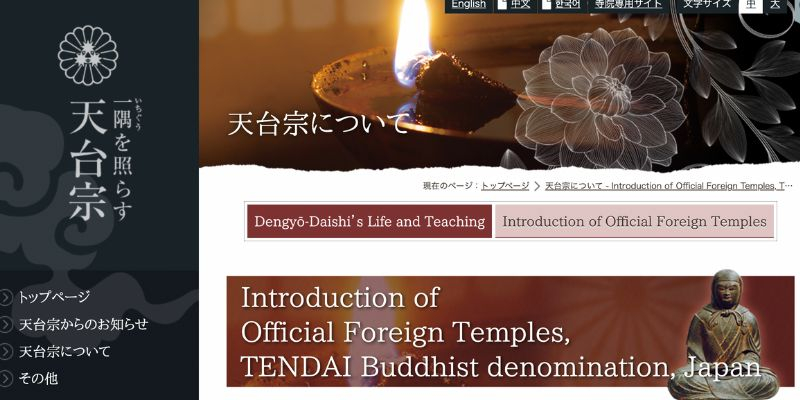
Screenshot of https://www.tendai.or.jp/english/temple.php 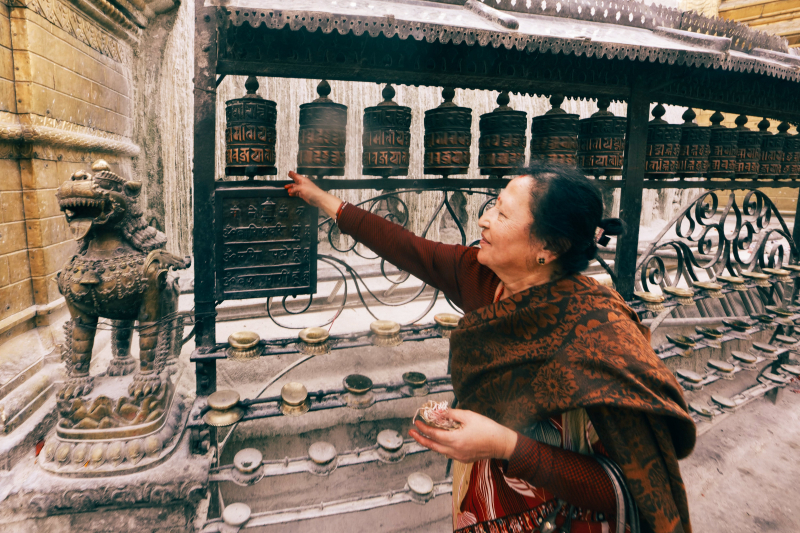
Photo by Mehmet Turgut Kirkgoz : https://www.pexels.com/vi-vn/anh/dan-ba-chan-dung-dieu-kh-c-ngoai-tr-i-11373329/ -
Kagyu Thegchen Ling Buddhist Temples stand as serene gateways to the rich teachings of Tibetan Buddhism. These temples offer seekers and practitioners a sanctuary for meditation, spiritual exploration, and a connection to the profound wisdom of Tibetan Buddhism. The Kagyu school is renowned for its emphasis on direct experience and meditation.
Kagyu Thegchen Ling embodies the Kagyu lineage, providing a space for the transmission of teachings that have been passed down through generations of realized masters. The history of Kagyu Thegchen Ling in Honolulu traces back to its establishment, signifying a commitment to bringing the profound teachings of Tibetan Buddhism to the diverse community of Hawaii. The story of its inception and the journey it undertook in adapting Tibetan traditions to the Pacific context adds depth to its cultural significance.
The temples' architectural design is a fusion of traditional Tibetan aesthetics and a nod to the local Hawaiian environment. Vibrant colors, intricate carvings, and prayer flags may adorn the temple structures. The design not only reflects the rich cultural heritage of Tibet but also creates an atmosphere conducive to meditation and spiritual practice.
Kagyu Thegchen Ling Temples serve as spiritual hubs where practitioners engage in a variety of traditional Tibetan Buddhist practices. Daily meditation sessions, prayer rituals, and teachings by experienced lamas contribute to the spiritual growth of individuals seeking a deeper understanding of Tibetan Buddhist philosophy.
Within Kagyu Thegchen Ling, meditation halls and retreat spaces are crafted to provide an environment conducive to focused contemplation. These spaces offer practitioners the opportunity to immerse themselves in the transformative practice of meditation, fostering inner peace and insight.
The temples come alive during Tibetan Buddhist festivals and cultural celebrations. Losar, the Tibetan New Year, and other significant events are marked by colorful ceremonies, traditional dance, and communal gatherings. These celebrations not only honor the rich heritage of Tibetan Buddhism but also create a sense of community among practitioners.
Kagyu Thegchen Ling actively engages with the local community through outreach programs, educational initiatives, and partnerships with other religious and cultural organizations. This outreach fosters understanding, tolerance, and a sense of shared humanity. Kagyu Thegchen Ling plays a vital role in preserving Tibetan culture in the heart of Honolulu.
Phone: +180 8595 8989
Website: https://shangpakagyu.org/kagyu-thegchen-ling/
Address: 26 Gartley Pl, Honolulu, HI 96817, USA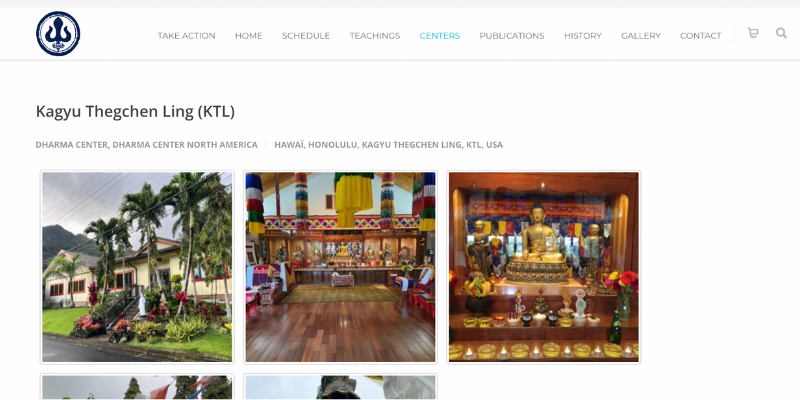
Screenshot of https://shangpakagyu.org/kagyu-thegchen-ling/ 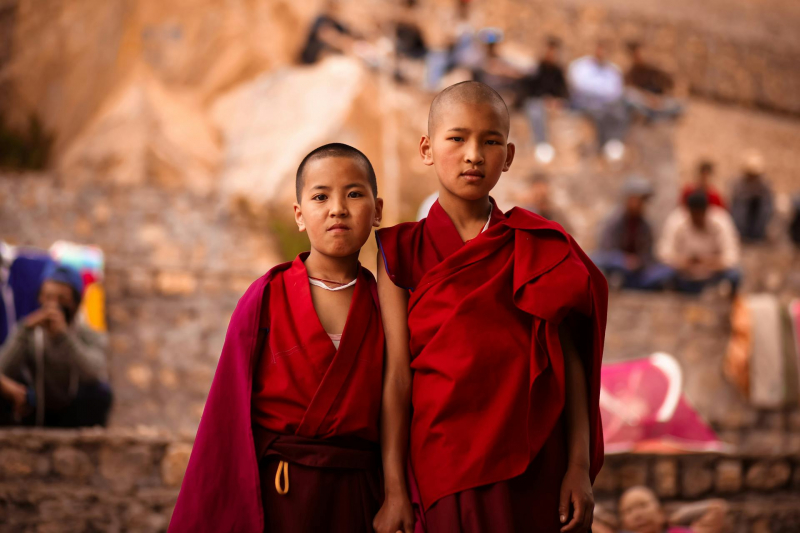
Photo by Abhieshek Shivdas: https://www.pexels.com/vi-vn/anh/chan-dung-18344380/ -
Soto Mission of Hawaii Shoboji Buddhist Temples stands as a serene testament to the rich spiritual heritage of Japanese Buddhism. These temples offer a tranquil oasis amidst the bustling urban landscape, inviting both locals and visitors to experience the profound wisdom and peaceful ambiance that characterize this ancient tradition.
The Soto Mission of Hawaii comprises several temples, with Shoboji being a prominent and cherished center in Honolulu. Shoboji serves as a spiritual hub for the local community, providing a space for worship, meditation, and cultural activities. The temples are adorned with traditional Japanese architecture, featuring sloping roofs, wooden beams, and serene gardens that enhance the meditative atmosphere.
At the heart of Soto Zen practice is Zazen, a form of seated meditation that emphasizes mindfulness and awareness. The temples offer regular meditation sessions, inviting practitioners to cultivate a deep connection with their inner selves and the present moment. The temples provides a comprehensive experience of Soto Zen teachings.
The Soto Mission of Hawaii is not only a spiritual institution but also a guardian of Japanese cultural heritage in the Pacific. The temples organize cultural events, workshops, and festivals that celebrate traditional Japanese arts, music, and cuisine. These initiatives contribute to the preservation and dissemination of Japan's cultural richness in the vibrant tapestry of Hawaiian society.
The Soto Mission of Hawaii is deeply engaged in community service and outreach. The temples organize charitable activities, participate in interfaith dialogues, and collaborate with local organizations to address the broader needs of the community. This commitment to service reflects the compassionate ethos of Soto Zen, encouraging followers to embody the teachings in their daily lives.
The Soto Mission of Hawaii Shoboji Buddhist Temples in Honolulu stands as a beacon of peace, wisdom, and cultural heritage in the heart of the Pacific. Its rich history, spiritual practices, cultural preservation efforts, and community engagement make it a valuable asset to both the Japanese diaspora and the wider community in Hawaii.
Phone: +180 8537 9409
Website: https://www.sotomission.org/
Address: 1708 Nuuanu Ave, Honolulu, HI 96817, USAVideo by Soto Mission of Hawaii Shoboji 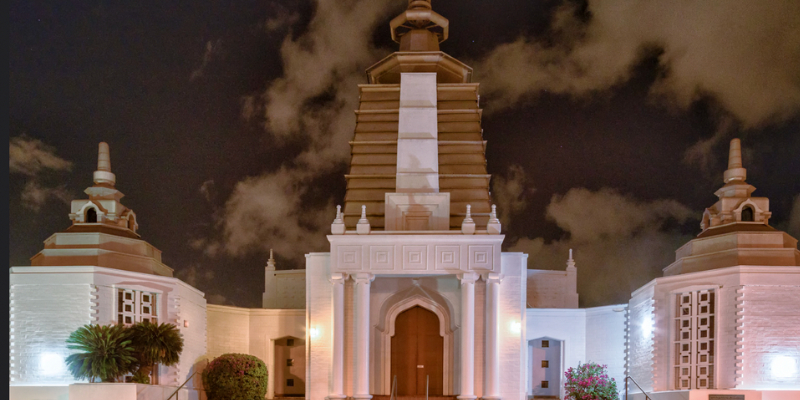
Photo on Flickr: https://www.flickr.com/photos/karmredland/36243538242/ -
Honpa Hongwanji Hawaii Betsuin stands as a beacon of Pure Land Buddhism. This temple is a spiritual sanctuary that not only serves as a place of worship but also fosters a sense of community, cultural preservation, and social engagement. The establishment of the Hawaii Betsuin, or main temple, marked the formalization of this spiritual presence in the local community.
The Honpa Hongwanji Hawaii Betsuin, located in Honolulu, boasts an architectural elegance that reflects the fusion of Japanese and Hawaiian aesthetics. Its design features traditional elements such as sloping roofs, wooden structures, and serene gardens, creating an atmosphere conducive to contemplation and spiritual practice. The main hall, or hondo, serves as the central sacred space where followers gather for worship, chanting, and ceremonies.
The temple conducts regular services and gatherings where practitioners engage in Nembutsu, fostering a sense of connection to the Buddha's compassion and wisdom. Honpa Hongwanji Hawaii Betsuin plays a vital role in preserving and promoting Japanese culture and traditions in the Hawaiian context.
The temple organizes cultural events, workshops, and educational programs that showcase various aspects of Japanese heritage, including art, language, and cuisine. These initiatives contribute to the enrichment of the local community and the passing down of cultural knowledge to future generations. The temple actively engages in community service initiatives, embodying the Buddhist principle of compassion in action.
The Honpa Hongwanji Hawaii Betsuin addresses social issues, promotes interfaith dialogue, and contributes to the well-being of the broader community. This commitment to social engagement reflects the temple's dedication to living out the teachings of Pure Land Buddhism in practical ways.
Phone: +180 8536 7044
Website: https://hawaiibetsuin.org/
Address: 1727 Pali Hwy, Honolulu, HI 96813, USAVideo by Honpa Hongwanji Hawaii Betsuin 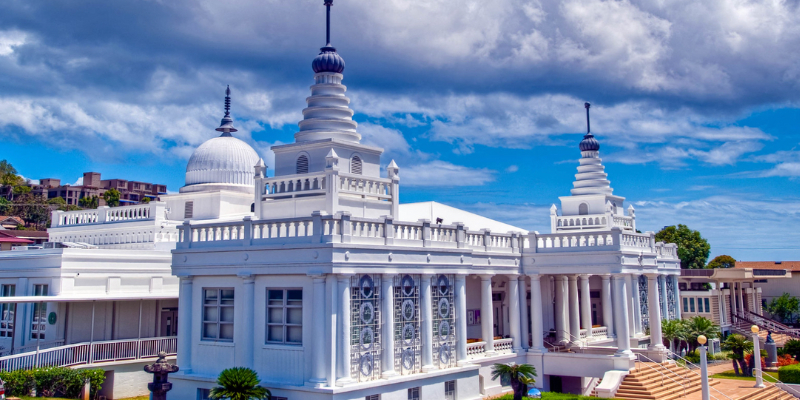
Photo by Flickr: https://www.flickr.com/photos/racketrx/4604032220/ -
Jikoen Hongwanji features traditional Japanese architectural elements blended with the unique aesthetics of Hawaii. The temple's physical space is likely designed to create a serene and contemplative environment conducive to Buddhist practice. Beautiful gardens and symbolic structures would likely contribute to the tranquil ambiance that characterizes Hongwanji temples.
This practice is believed to lead followers to the Pure Land, a realm of enlightenment and peace. Regular services, study groups, and community gatherings likely form integral parts of Jikoen's activities, providing opportunities for practitioners to deepen their understanding of Pure Land teachings.
Jikoen Hongwanji is likely actively involved in cultural preservation. It recognizes the importance of passing down Japanese traditions to future generations in the Hawaiian context. Cultural events, workshops, and educational programs are likely organized to showcase aspects of Japanese heritage, fostering a greater understanding and appreciation within the local community.
Jikoen is likely deeply committed to community service and social engagement. Through initiatives such as food drives, charitable activities, and partnerships with local organizations, the temple likely contributes to the well-being of the broader community. This commitment to social responsibility reflects the Buddhist principles of compassion and altruism in action.
Jikoen Hongwanji stands as a spiritual and cultural anchor in the diverse landscape of Hawaii. Through its teachings, cultural initiatives, and community engagement, Jikoen likely continues to play a vital role in nurturing both the spiritual well-being of its followers and the harmony of the broader Hawaiian community.
Phone: +180 8845 3422
Website: https://jikoenhongwanji.org/
Address: 1731 N School St, Honolulu, HI 96819, USA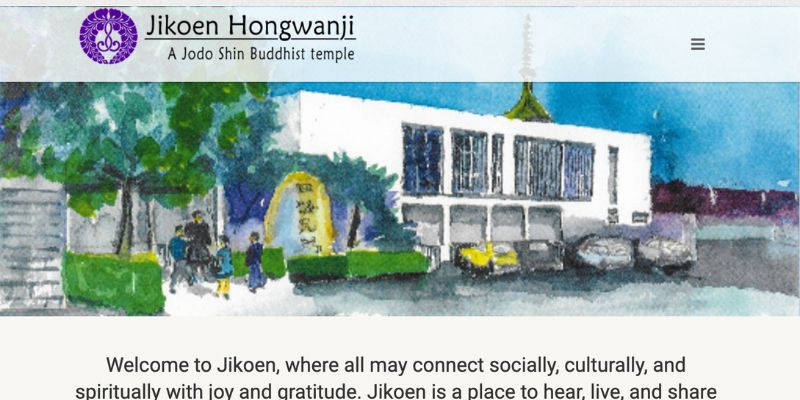
Screenshot of https://jikoenhongwanji.org/ 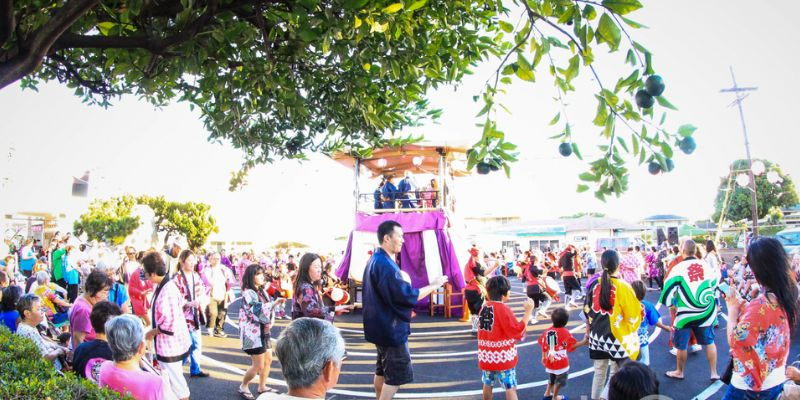
Photo on Flickr: https://www.flickr.com/photos/cperis/14689475805/ -
The Hawaii Chinese Buddhist Society likely traces its roots to the waves of Chinese immigrants who arrived in Hawaii seeking new opportunities and a sense of community. The Hawaii Chinese Buddhist Society is likely adorned with traditional architectural elements that reflect the aesthetics of Chinese Buddhism. Temples or halls within the society may feature intricate designs, symbolic imagery, and serene gardens, creating an environment conducive to meditation and spiritual reflection.
At the core of the Hawaii Chinese Buddhist Society's mission is the dissemination of Buddhist teachings and the practice of mindfulness. Followers are likely encouraged to engage in meditation, sutra recitation, and other contemplative practices that aim to cultivate inner peace and enlightenment. Regular services and study sessions may provide opportunities for the community to deepen their understanding of Buddhist philosophy.
The Hawaii Chinese Buddhist Society likely places a strong emphasis on preserving and promoting Chinese culture. Cultural events, language classes, and workshops may be organized to celebrate traditional Chinese customs, art, and cuisine. These initiatives contribute not only to the enrichment of the society's members but also to the wider community's appreciation of Chinese heritage.
The Hawaii Chinese Buddhist Society is likely deeply committed to community service and social engagement. By actively participating in charitable activities, outreach programs, and partnerships with local organizations, the society may contribute to the well-being of the broader community. This commitment to social responsibility reflects the Buddhist principles of compassion and altruism in action.
In the spirit of unity and understanding, the Hawaii Chinese Buddhist Society may engage in interfaith dialogue, fostering connections with other religious communities on the islands. Collaborative initiatives and events with different faith groups contribute to the promotion of mutual respect, tolerance, and shared values.
The Hawaii Chinese Buddhist Society, with its deep roots in Chinese Buddhism, serves as a spiritual anchor for its members and a bridge between cultures in the diverse setting of Hawaii. The society plays a vital role in nurturing both the spiritual well-being of its members and the harmonious coexistence of Hawaii's multicultural society.
Phone: +180 8533 6758
Website: https://www.hawaiichinesebuddhistsociety.org/
Address: 1614 Nuuanu Ave, Honolulu, HI 96817, USA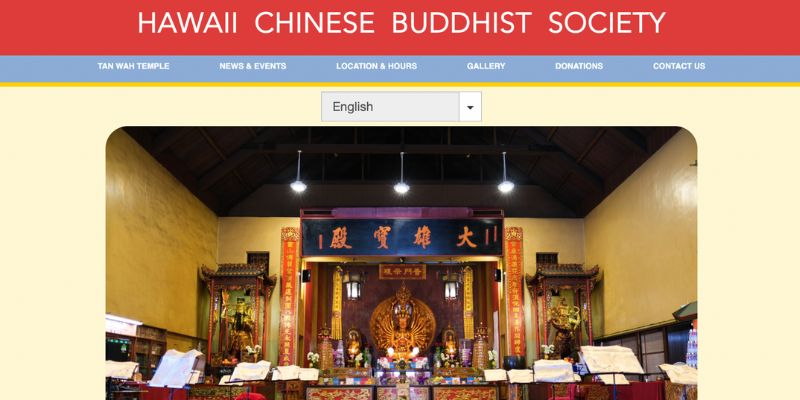
Screenshot of https://www.hawaiichinesebuddhistsociety.org/ 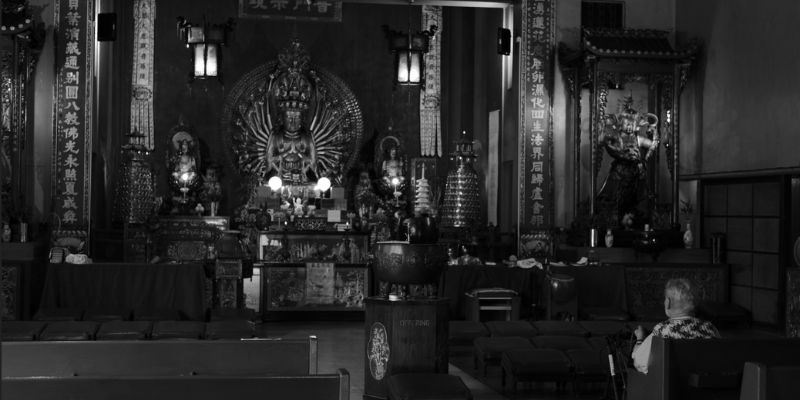
Photo on Flickr: https://www.flickr.com/photos/100yearstolive/39880740103/












